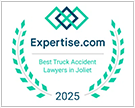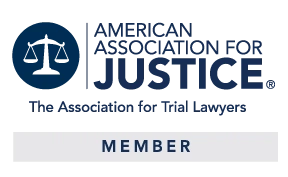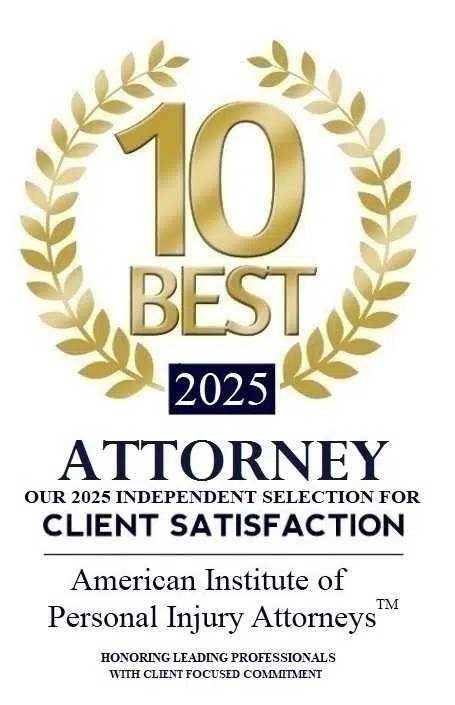Trucking companies are often liable for accidents involving their trucks. Injured victims can either sue or seek to negotiate a settlement with any liable defendant. But what happens if the trucking company immediately denies they are to blame?
Call Michael J. Lichner, an experienced truck accident lawyer. He has the resources accident victims need when trucking companies are denying liability. Our firm can start gathering evidence and fight for you to get the compensation you deserve.
Why Truck Accident Liability Matters
Illinois is a “fault state” for accidents. When an individual or business is liable, they must pay compensation to anyone they injured due to careless or wrongful conduct. For this reason, liability is a contested issue. If a trucking company would admit liability, then everything would be easier. However, by denying liability, these companies seek to avoid paying any compensation, which would leave injured victims to pick up the pieces on their own.
Who is Liable in a Truck Accident in Illinois?
Liability typically rests with one or more of the following:
- Truckers. A trucker might be liable for driving dangerously, such as speeding or running a red light. Other truckers are impaired due to fatigue because they were on the road too long, or they consumed alcohol or drugs right before starting up a rig. Distracted driving is also a problem for truckers.
- Trucking companies. A trucking company could be liable under several theories. For example, if they own the truck, and if they are liable for an accident when one of their defective vehicles crashes. Unsurprisingly, some trucking companies cut corners when it comes to maintenance. In other situations, a trucking company is liable because they are the trucker’s employer, and Illinois imposes automatic liability on employers when their workers are negligent while performing job duties.
- Freight companies. The company that owns the freight could have improperly secured it or overloaded a truck, making it dangerous to drive. Many rollovers and jackknife accidents stem from overloaded trucks, and the loading dock could be to blame.
- Mechanics. An independent mechanic could be liable for failing to perform repairs properly or failing to spot a problem on the truck.
How We Respond to Trucking Companies Denying Liability
Hiring a lawyer is a great first step. An experienced Joliet truck accident lawyer can immediately respond to the company’s denials.
Our firm counters trucking companies by aggressively gathering as much evidence as we can find and then sifting through it with a magnifying glass. We look for any evidence that the trucker was negligent or the truck was defective.
For example, we usually request access to the “black box” data, which is continuously recorded when a truck is in motion. This data might show the trucker refused to brake or even accelerate while approaching a light. Other data could show the trucker was driving for too many hours in a day, which means they were likely fatigued.
We also look for eyewitnesses who can describe what they saw and for photographs or video of the accident. A bystander might have seen a truck aggressively swerve, which caused it to flip on its side and crush a nearby vehicle. Their testimony helps establish the trucker’s liability.
Further evidence includes evidence in the trucker’s employment file. Trucking companies should give their drivers a drug test after most accidents, and we can request access to the results. A drunk or high trucker is invariably liable for a collision.
We Respond Forcefully to Claims of Contributory Negligence
Illinois has a contributory negligence law that prevents a person from obtaining compensation if they are more than 50% responsible. The law works like this:
- If your liability is 50% or less, then your compensation will be reduced by a similar percentage. This means that you will receive 25% less if you are 25% liable, 40% less if 40% liable, and so on.
- When liability exceeds 50%, an Illinois accident victim cannot receive anything in compensation.
- A jury would decide contributory negligence at trial. But in negotiations, your lawyer and the defendant’s insurer will likely hammer out how to allocate fault between you and the trucker or trucking company.
Accusations of negligence are easy to make—but the other side needs proof you were speeding, distracted, or impaired yourself. Let us survey the record to determine whether there is any truth to the defense strategy.
What to Avoid Doing after a Truck Accident
As an injured motorist, you might be frustrated that the trucking company is denying liability. However, there are things you shouldn’t do, regardless of your frustration:
- Don’t lash out on social media. Avoid going to the trucking company’s Facebook page or website and leaving a nasty review. This type of behavior could hurt your case, and it certainly makes you look unreasonable.
- Do not try to negotiate your claim. It’s harder to prove liability than most people imagine. It takes hard work and full knowledge of the relevant facts.
- Avoid accepting a settlement out of desperation. Most of our truck accident clients are struggling with major injuries, which cause sharp financial distress. Many cannot work as they attend weeks of rehabilitation. No matter how desperate you feel, you should never agree to the first settlement offer because it is almost always too low.
- Decline to provide a recorded statement to the insurance companies. At least wait until you hire a lawyer. It is too easy to blurt out something you can’t take back, which might harm your chances of success.
Hire a seasoned lawyer first to design a strategy for countering the trucking company’s story of what happened.
Speak with Michael J. Lichner Today
Truck accident cases require heavy lifting to understand who is liable. Trucking companies and their defense teams work night and day to deny liability and avoid paying injured victims fair compensation. You deserve an experienced truck accident lawyer, like Michael J Lichner, to represent you in negotiations. Contact us today to schedule a free consultation.












